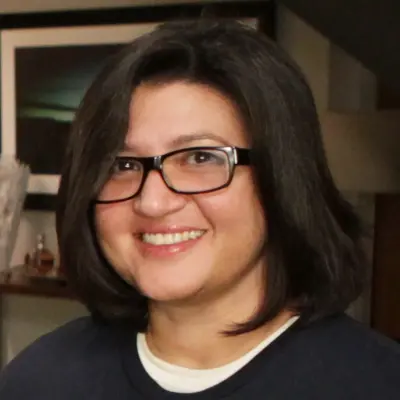Nahnatchka Khan: It's time to rethink the "strong female character"
-

The Fresh Off the Boat creator and Young Rock co-creator writes in a Rolling Stone essay that "as societal and cultural attitudes have evolved, so has the idea of what a strong woman is. Consider I Love Lucy, which premiered 70 years ago. Looking back through a 2021 lens does a disservice to what a series like that meant at the time — a prime-time showcase for a very talented female comedian, on one of only three networks (!) for viewers to turn to. But it is 2021, so we can’t completely ignore the premise: A housewife who just wants to get into show business has to go around her unsupportive husband — who is in show business — to try to get a foot in the door despite him. Lucy Ricardo was a trailblazer, for sure, but was she strong? How are we even defining the strength we want to see in our female characters? Is it someone who’s a badass? No-nonsense? A bitch? For a long time, in order to be considered strong, the prevalent thinking was that women needed to act like men. Maude and Murphy Brown were two of TV’s brassiest, most outspoken women, and each paid the price for it in some ways...In the late Nineties, we met Carrie Bradshaw, Ally McBeal, and Felicity. All classic characters, they were single women who didn’t rely on men to support them — yet their lives revolved around men anyway, in the pursuit of the 'one big love'...Is the iconic Mary Richards from The Mary Tyler Moore Show a strong female character, or her modern-day analogue Valerie Cherish (Lisa Kudrow) from The Comeback? Their series aired decades apart, but they’re both different versions of women trying to make it in a man’s world by playing within established rules. All of these examples demonstrate progress in representation — and problems with it, too (including a glaring lack of diversity). Thankfully, in the past decade, there’s been a seismic shift in the fullness of female depictions on TV. The now well-known industry disruptors — the streaming platforms, led by Netflix — have created an unprecedented demand for content, and with it, opportunities for new storytellers. If the arc of television history has been long, there’s recently been a sharp spike in imagination, which has given us Issa Dee (Issa Rae), the everywoman struggling to find her path in Insecure; Arabella (Michaela Coel), the internet-famous author confronting trauma in I May Destroy You; Sister Night (Regina King), the perp-beating renegade cop from Watchmen; basically all of the women of Orange Is the New Black; and more complicated versions of white female characters, like Pamela Adlon’s Sam Fox, the divorced mom trying to keep it together in Better Things, or Eleanor Shellstrop (Kristen Bell), the self-described 'Arizona trash bag' of The Good Place."
TOPICS: Nahnatchka Khan, Women and TV
More Nahnatchka Khan on Primetimer:
